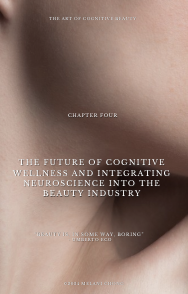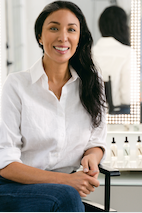Skin in Isolation

These days, the theme of self preservation and safeguarding our loved ones leads us to take the path for the greater good and to stay home in self-isolation. We are spending more time indoors, close to home, showering, cleansing our skin and in front of our screens.
Indoor light, screen light and the indoor air quality effects our skin's natural balancing system, or stasis, our skin's ability to adapt to it's surroundings to stay healthy. This also includes our internal environment, like diet and nutrition, hormones and emotional state. These factors all affect our skin and they have all been through a drastic upheaval in the past weeks as our lives have adapted to the conditions required to fend off illness. UV rays from indoor lights as well as the sunlight that emerges indoors affect our skin health and so does the lack of natural light and fresh air we may be experiencing lately.
The nutritional benefits that the skin experiences from all light is necessary for healthy living, but the extensive exposure to UVA/UVB and blue light from phones and screens can cause oxidative stress that can lead to premature aging. Quality of life depends on life balance and timely exposure to the healthful practices that involve fresh air, sunlight, daily nutrition, exercise and mental and emotional happiness.
During COVID-19 Self Isolation our skin will have experienced phases of change and some common effects such as:
- Dryness - due to indoor air circulation, dehydration, increase in use of cleansing products that strip natural oils from skin
- Acne - change in schedule affects our external and internal systems including hormones and emotional states which can lead to acne, excessive sebum or skin oil production
- Sensitivity - itchy or red patches can emerge when our body adjusts to change in diet, hormones and washing routine
- Wrinkles & Fine lines - indoor pollution & dehydration, stress, say no more
- Pale, Dull Skin Tone - lack of sun exposure, low blood circulation, low Vitamin D
- Darkness under eyes - due to change in sleep patterns, dehydration, lack of sunlight exposure, emotional stress and fatigue
Our skin is our body's first system of defence against our environment and it is working hard today.
Fortunately, over time, skin adapts with exposure to it's physical environment, it's geographical location and also in our daily movements to-and-from the outdoors and our own particular lifestyle patterns. It takes about 15 days for skin to adapt.
With the right practices, you can gain control over your skin again. The skin matrix is always evolving, sweating, breathing, rejuvenating and protecting us from pathogens. Our skin possesses it's own micro-defence system called the microbiome which occurs on all surfaces of the skin. It possesses it's own naturally occurring blend of good and bad bacteria that fight off abnormal levels of bacteria and pathogen.
Also in MC2 BLOG

Welcome to The Future of Neuro Beauty
The understanding of Cognitive Beauty opens new possibilities for beauty treatments that go beyond surface-level aesthetics and delve into the underlying neurobiology of beauty and the diverse world of aesthetics.

Your Skin Is A Quantum Communicator
Your skin is a sensory force field, constantly receiving and emitting powerful signals. It’s how you interact with the world and how the world interacts with you.
Your skin is a quantum communicator—it picks up vibrations, temperature changes, even emotional energy from others - Melani Chong

The Skin - Brain Axis - How It works
Melani Chong Neuro Beauty Expert ::: The Skin-Brain Superhighway
Did you know your skin and brain have a hotline to each other? Yep, they're chatting 24/7 through a superhighway of nerves and biochemicals. Stress, mood, and even how well you sleep can affect your glow-up game.
Because understanding this connection gives you the power to take control of your skin's story. Managing stress, sleeping well, and using neurocosmetic ingredients can help keep both your mind and skin in harmony.

